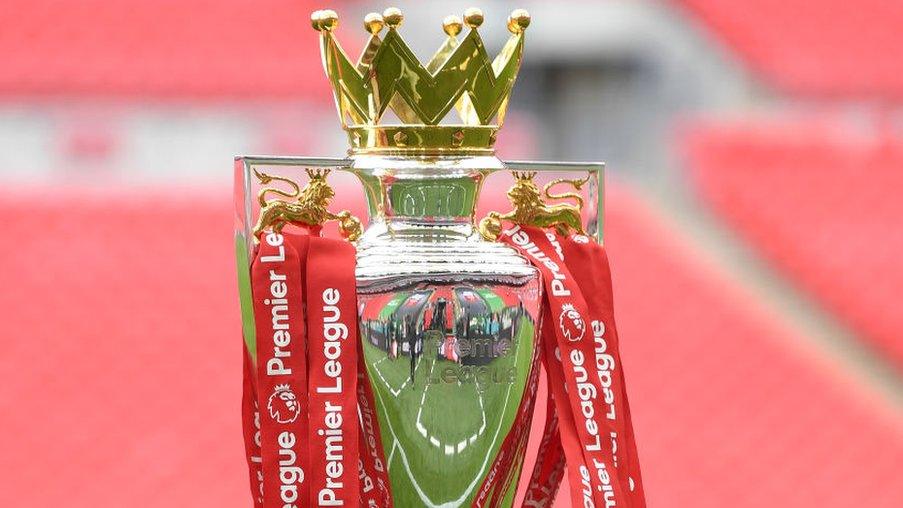Morgan, Bronze and Harder: Why are football's biggest stars coming to England?
- Published
- comments
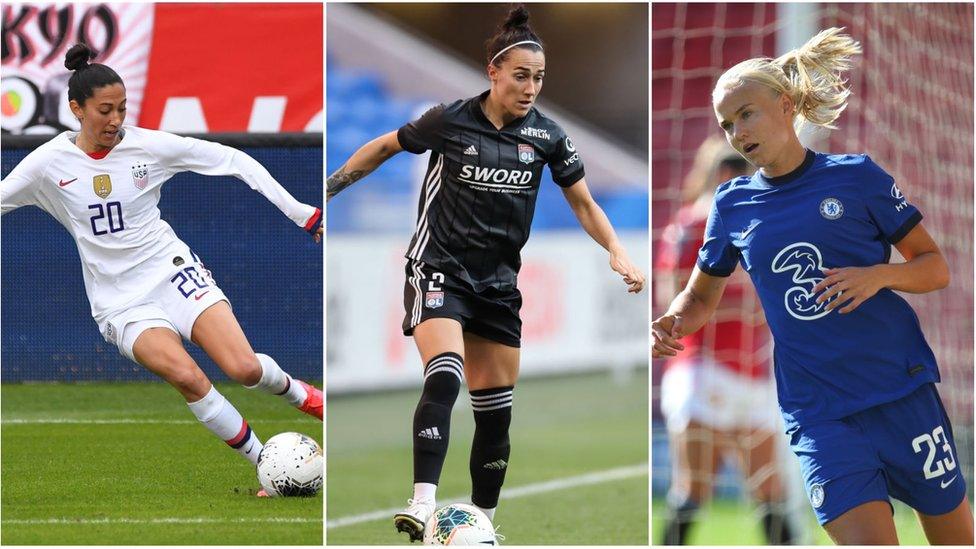
Some of the best players in the world have joined the Women's Super League this season
It's been a busy week for new WSL signings.
Forward Alex Morgan is the latest superstar player to join England's top tier. The 31-year-old forward, who was part of last year's World Cup-winning squad, is set to join Tottenham Hotspur on a short-term deal until the end of December.
Manchester United Women have also signed the two-time World Cup-winning United States and NWSL players Tobin Heath and Christen Press. While Manchester City also signed Alex Greenwood and Lucy Bronze.
The pair were both playing at Olympique Lyonnais, who have won the the Champions League for the past five years.
For several years, the world's top players were going to play for Lyon.
But things have changed this summer, with more world-class players coming to play in the WSL.
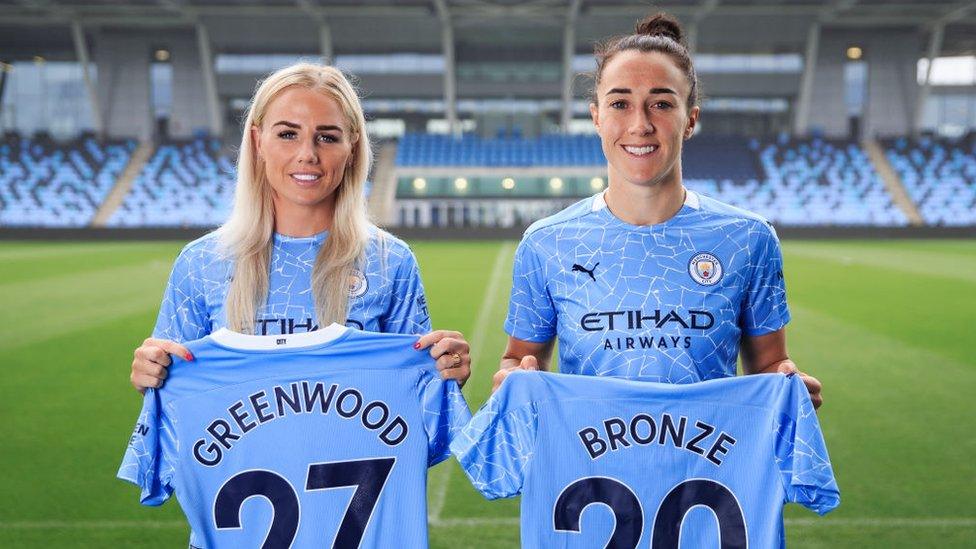
Alex Greenwood (left) and Lucy Bronze (right)
Pernille Harder
Chelsea announced Denmark legend Pernille Harder, who they signed from Wolfsburg for a fee that, according to BBC Sport, is a world record fee of more than £250,000.
It is thought that this fee would make Harder the most expensive female footballer in the world, but the exact world record fee is not known because a lot of deals are undisclosed.
Pernille Harder is regarded as one of the best players in the world.
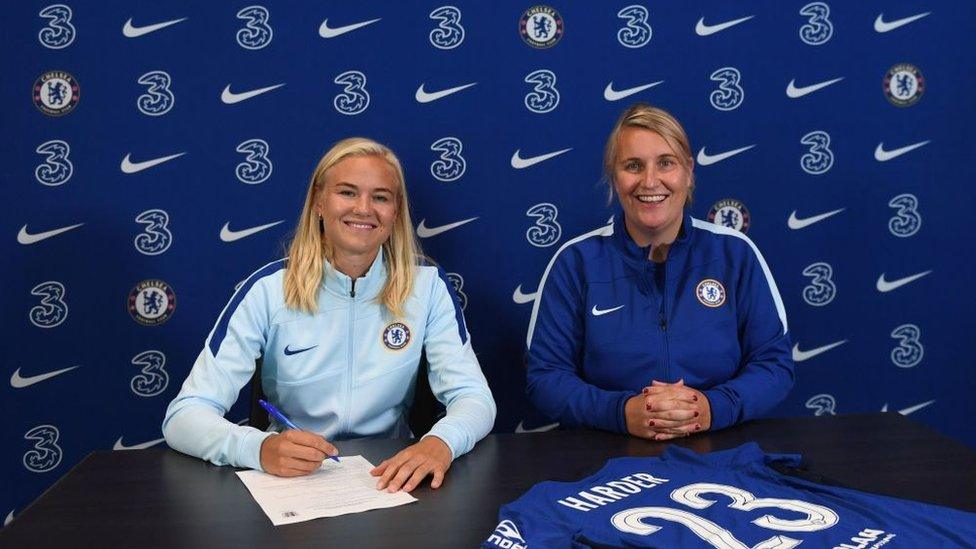
Pernille Harder won the UEFA Women's Player of the Year Award in 2018
• Led Denmark to the final of Women's Euro 2017
• 61 goals in 118 senior international appearances for Denmark
• Top scorer in the Women's Bundesliga last season, with 27 goals in 21 games
• Helped Wolfsburg win four consecutive German league and cup doubles since then
She's a player every team would love to have on their side. So why Chelsea?
The Blues boss Emma Hayes this about Harder: "She chose the players, the staff, the environment, the playing style. You can't get a bigger compliment than that from one of the best players in the world."
Why are so many big names coming to the WSL?
The more world-class players that come to the league, the more attractive it is to others who want to play with the best players in the world. So to an extent, there's a domino-effect which brings more in.
Manchester City have also signed World-Cup winner Rose Lavelle for this season, and she told the Offside Rule Podcast "there are so many great players that I'm excited to be able to train with every day, and also to be able to learn from."
"I think I am still a little rough around the edges, and I have a lot to learn, so I'm excited to be in an environment that is going to push me to do so."
So the quality of players is definitely one reason big names are coming.
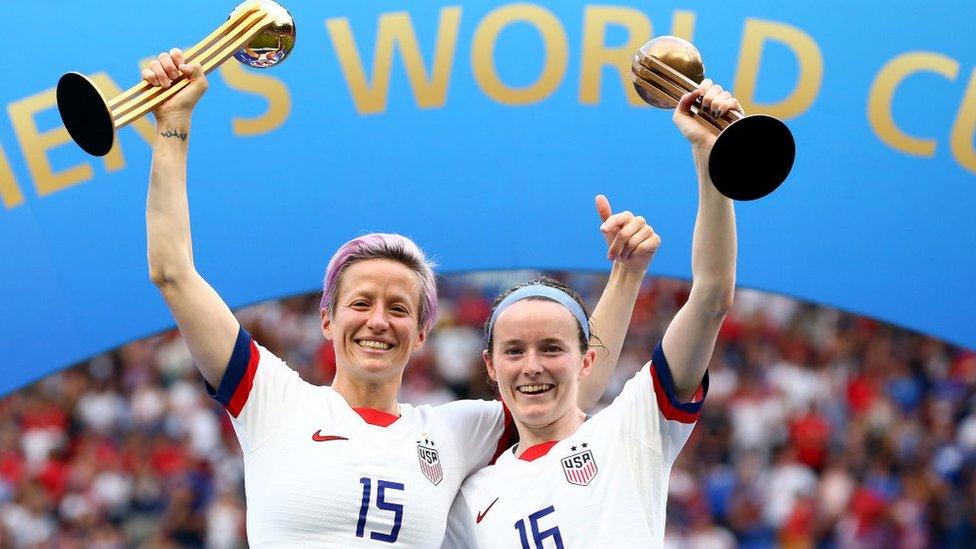
USA's Rose Lavelle (right) with Megan Rapinoe (left) after the 2019 Women's World Cup win
What about the money?
Chelsea signed Australia's Sam Kerr in November 2019.
Kerr, 26, holds the all-time goal-scoring records in both the American and Australian leagues. Again, she is regarded as one of the best players in the world.
The American women's league, the NWSL, has a salary cap. But Chelsea, like many other European clubs does not.
Although it was not confirmed, there are reports that Sam Kerr's deal was worth over $410,000 (around £316,000) per season. That is more than any NWSL club could have paid her.
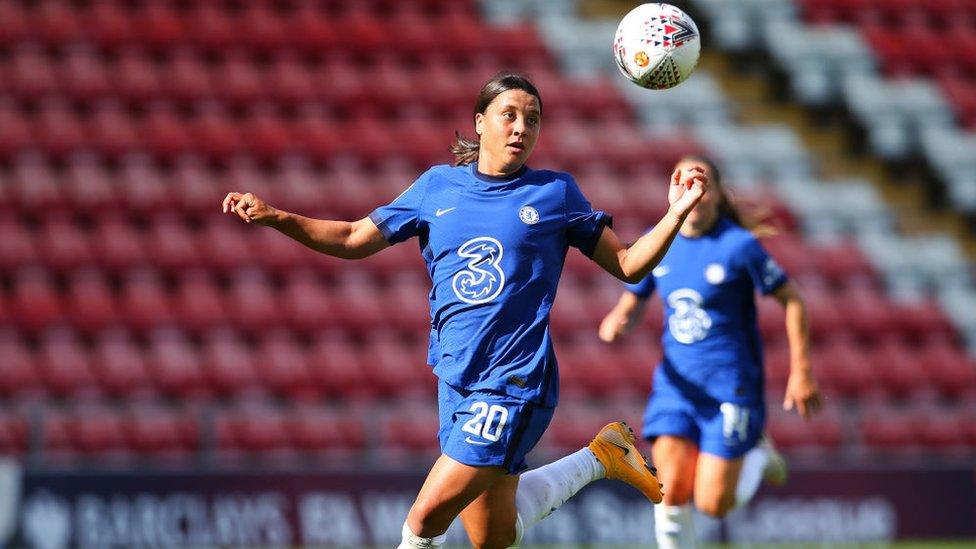
Sam Kerr moved from Chicago Red Stars to Chelsea in November 2019
The WSL's profile is getting bigger in the UK too.
For the opening games of last season, women's games were played at Stamford Bridge and the Etihad stadium, which were smashed attendance records for the League.
And of course, England is the home of football. When Kerr joined Chelsea, she said:
"I've always been attracted to English football and the vibe that's here and, speaking to Emma [Hayes], she seemed like the best fit for me, and doing a little bit of research about the girls and the team, it just seemed right."
What about the British players?
We want world-class players and we've seen some amazing signings. That's brilliant for the league and it's brilliant for the England players because those who are playing here, they're playing against some of the best players in the world.
There are things in place to make sure British players are getting a chance to play in the WSL too.
The Football Association (FA) recently introduced a new rule that means Women's Super League teams will have to include at least eight homegrown players in their teams from the 2021-22 season and onwards.
In the Women's Championship - England's second tier - a higher proportion of players (60%) will have to be homegrown.
Championship squads vary in size, but a full-sized squad of 25 players would need at least 15 who were homegrown, or 14 in a squad of 24.
- Published9 September 2020
